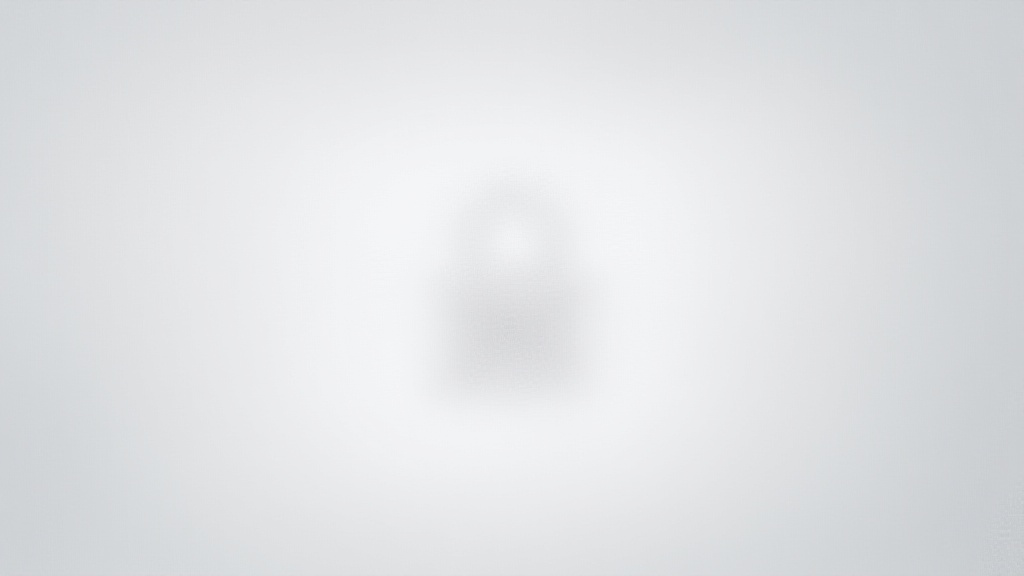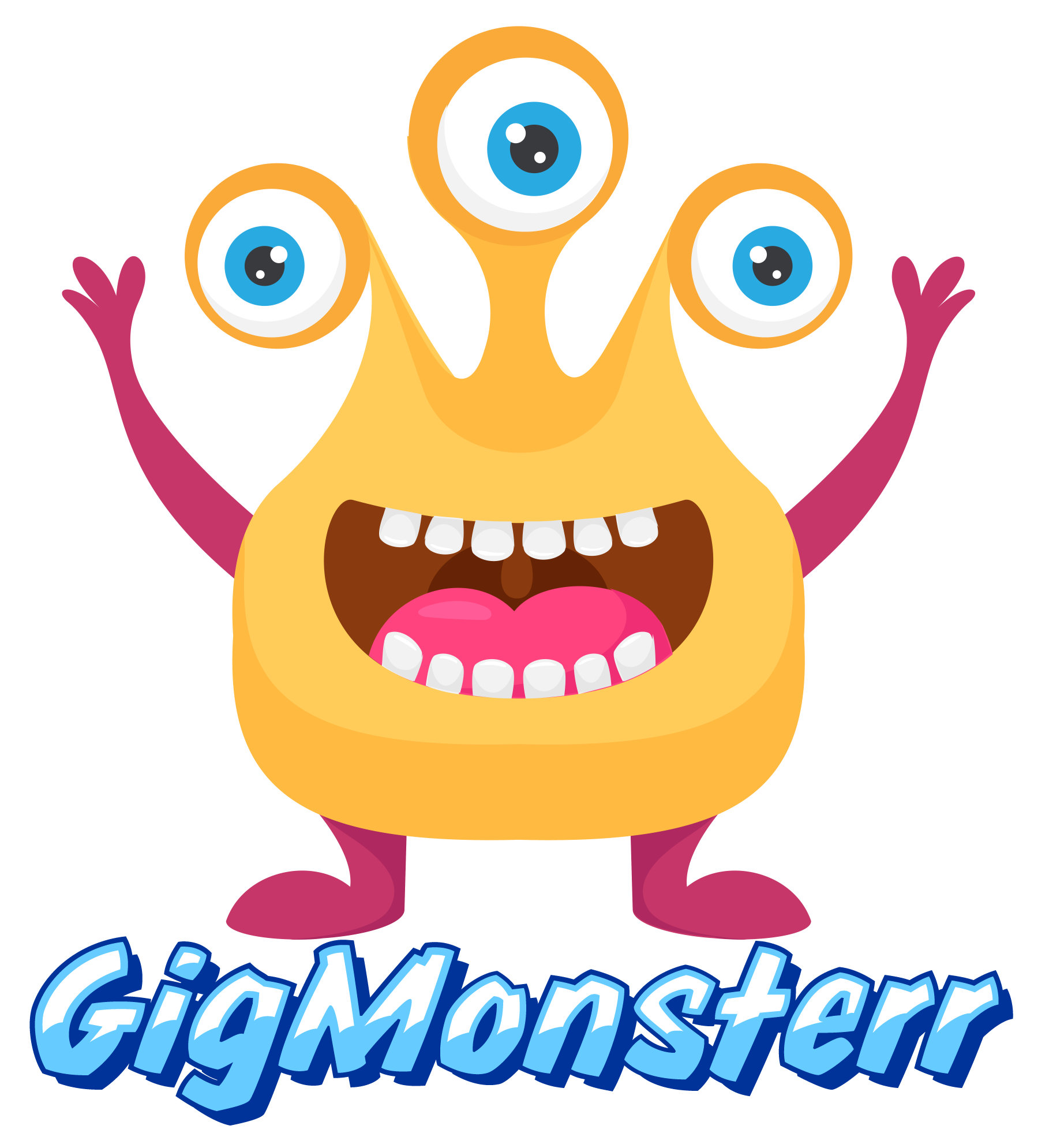If you’re new to market research interviews, you might be unsure about what to expect when facing your first round of questions and answers. I remember feeling a bit nervous before my first experience, so I want to share all the key details that will help you prepare and feel more confident. Market research interviews are designed to collect opinions, reactions, and feedback that can shape products, services, or marketing campaigns. Whether you’re participating as a candidate, a customer, or a user, knowing what happens during these interviews and the types of questions that come up can really ease your mind.
Here’s a quick overview of what I’ll cover in this guide so you can get a strong head start:
- What happens in a market research interview
- Why these interviews matter and how answers shape decisions
- Common types of questions you’ll face with examples and sample answers
- Tips for giving honest and helpful responses
- What interviewers are looking for from your answers
- What it feels like to participate and what to expect during the actual interview
- How you can benefit from being part of a market research interview
- What happens after the interview
I’ll break down everything I learned from my first few interviews so you know what’s coming and how to get the most out of your experience. Through this article, you’ll also get some behind-the-scenes pointers and extra tips drawn from recent trends in the field, making your journey into market research even more useful and comfortable.
What Is a Market Research Interview?
A market research interview happens when a company or research agency asks questions to better understand a person’s thoughts, opinions, or habits. These interviews can explore anything—from how you feel about an advertisement to what you like or dislike about a product or website. Increasingly, these interviews are taking place online, making it easier to join in from the comfort of your home.
The goal here is not to test your knowledge or quiz you with right or wrong answers. Instead, interviewers ask about your real opinions and experiences. When I took part in my first interview, I realized pretty quickly that there was no pressure to “perform.” I just needed to share my honest thoughts, and the conversation flowed naturally.
Why Market Research Interviews Matter
Market research interviews play an important role in shaping decisions for businesses. The answers provided help companies:
- Understand customer needs and preferences
- Test new ideas or concepts before launch
- Identify problems early and avoid costly mistakes
- Make marketing and advertising more effective
- Improve products and services so people like you are happier
- Track shifts in consumer behavior and keep up with trends
I noticed that when I gave clear, honest feedback, companies often made changes that I genuinely appreciated later on. Your answers really do have an impact. Participating feels meaningful because your unique viewpoint can influence future products or services.
Who Takes Part in Market Research Interviews?
You don’t need to be an expert to take part. Most often, interviewers look for everyday people from certain groups—maybe you belong to a specific age bracket, live in a certain area, or use a certain kind of product. Sometimes, they’ll want to talk to professionals about industry-specific products, but for most consumer research, you just need to share your personal point of view.
I’ve taken part as both a regular shopper and as someone with professional experience. Both experiences felt just as relaxed and welcoming. The important part is being honest and open with your answers. Companies really want diversity in feedback, so whatever your background, your input is valuable.
How a Typical Market Research Interview Works
The process usually starts this way:
- You fill out a short online form or answer a few screening questions to check if you match what the company is looking for
- If selected, you get scheduled for a virtual or in-person interview
- You meet a friendly interviewer who explains the ground rules
- Interview questions focus on your experiences, feelings, or habits
- You just need to be honest—there are no trick questions
- You might get a small reward for your time, such as a gift card or cash
In my first interview, I was nervous, but after a few minutes I realized it was more like a natural conversation with someone genuinely interested in my perspective. Interviewers are there to listen and guide the chat, not to judge or pressure you. Interviews may happen in all sorts of ways—over the phone, via video calls, or face-to-face. The experience is typically tailored to make it as comfortable as possible.
Types of Questions You’ll Encounter
One thing that stood out to me is how broad market research interviews can be. Some questions are light and general, while others ask for more detail. Here are the common types of questions and some sample answers from my personal experience:
1. Background Questions
These are easy “warm-up” questions. Interviewers simply want to know a bit about you. For example:
- “How often do you go grocery shopping?”
My answer: “I go once a week, usually on Saturday mornings.” - “Which phone brand are you currently using?”
My answer: “I’ve been using Samsung for the last four years, but before that, I used iPhones.”
There are no right or wrong answers here. Just be open about your actual behavior.
2. Experience Questions
These questions start to dig a little deeper into your experiences. You might be asked:
- “Tell me about the last time you used our app. What was it like?”
My answer: “The last time I used your app was last week to order pizza. It was easy to customize my order, but the payment step took a bit too long.” - “What do you remember about our latest commercial?”
My answer: “The ad had a catchy song and showed a dad and daughter making smoothies, but I don’t remember many details about the product itself.”
It’s okay if you don’t remember every detail. Just share what stuck out for you. Even small observations can be insightful. For instance, I once told an interviewer that a certain background color on a website caught my eye and made the experience more inviting—the small details can matter!
3. Opinion and Attitude Questions
This is where you’re invited to share what you like and dislike. Examples include:
- “What’s your opinion about this product’s packaging?”
My answer: “I think the packaging looks appealing, but I find it hard to open and it takes up a lot of space in my pantry.” - “How does this service compare to others you’ve tried?”
My answer: “Honestly, it’s faster than most, but the customer support could be friendlier.”
4. Behavioral Questions
Interviewers want to learn about your real habits and decision-making. These could be:
- “Describe the steps you take when choosing a new vacuum cleaner.”
My answer: “I usually start by checking online reviews, then I look for sales, and finally I go to the store if I want to see it in person.” - “What makes you switch from one brand to another?”
My answer: “I’ll switch if a brand’s prices go up or if I see good reviews on social media for something new.”
These give companies insight into what motivates real-life decisions. Sharing a step-by-step breakdown can help clarify your unique reasoning and shows how you really operate as a consumer.
5. Concept Testing Questions
Sometimes you’ll be shown something new—a product, an ad, or a website feature. The interviewer asks what you think about it.
- “Would you use this if it existed? Why or why not?”
My answer: “I probably would if it saved me time or money. But I’d need to see how it compares to what I use now.” - “What’s confusing or appealing about this concept?”
My answer: “The main idea makes sense, but the instructions are a little hard to follow.”
Honest criticism is really helpful here. Don’t worry about hurting anyone’s feelings, companies want your real response.
6. Hypothetical and “What If” Questions
Interviewers sometimes ask creative or hypothetical questions. For example:
- “If you could change one thing about this service, what would it be?”
- “Imagine you couldn’t use your favorite brand anymore. What’s the next best thing you would use, and why?”
I’ve found that it’s helpful to pause and think before answering. There is no need to rush. Sharing what genuinely makes sense for you is what matters most.
7. Ranking and Prioritization Questions
You might get asked to rank features in order of importance or choose your top picks. For example:
- “Which of these features do you care about most: price, quality, or design?”
- “If you had to pick one new feature for our app, what would it be and why?”
These help companies learn what really matters to people like you. My advice is to be honest about what would actually make you use or buy a product, even if it differs from what you think they want to hear. Sometimes, mentioning the trade-offs you make between features can help the company understand real consumer thought processes.
8. Follow-Up Questions
Sometimes, the interviewer will dig a bit deeper after your answer:
- “Can you tell me more about why that bothered you?”
- “What would have made that experience better?”
Don’t feel nervous. These questions just show they want more insight. Take your time to reflect and answer as thoughtfully as you can. It’s okay to ask questions in return if you need something clarified.
Sample Answers: What Interviewers Appreciate
The key thing I learned over time is that interviewers value:
- Honest answers (even if you dislike something!)
- Specific examples or stories
- Clarity (don’t worry about having the “perfect” answer)
- Polite feedback, even if it’s negative
- Consistency between what you say and what you do
So if you felt confused, say so. If you liked part of something but disliked another, share both sides. Interviewers aren’t looking for you to be positive about everything; they want the truth and a glimpse into how you really feel. Genuine perspectives carry more weight than generic answers.
How to Prepare for Your First Interview
It always helps to think ahead about what you might be asked. Here are a few tips that helped me feel ready on my first go:
- Think about the product, service, or topic in advance
- Recall a few experiences you’ve had with similar products or brands
- Be ready to share specific examples if asked
- Get comfortable with a video call setup (if your interview is online)
- Jot a couple of notes if you think it’ll help jog your memory
- Stay hydrated and set up in a quiet spot to avoid distractions
You don’t need to rehearse or memorize anything. Just get in the mindset of sharing openly about your preferences, likes, dislikes, and stories. You may also want to prepare a couple of questions for the interviewer, in case you want to understand more about the project or your role.
The Interview Experience: What It’s Really Like
If you’re worried about the actual vibe of the interview, here’s what I found:
- Interviews usually start with brief introductions
- The interviewer explains the purpose and checks that you consent to taking part
- You’re encouraged to speak freely—there are no wrong answers
- You’ll talk about your experiences, see some new ideas, or share opinions
- You might be asked follow-up questions for more details
- Everything wraps up smoothly with thanks and info about your reward
Most interviews are 20 to 60 minutes long. If you’re unsure about a question, just say so—it’s fine to ask for a little more detail or to take a moment to think. Many interviewers will happily give extra context or examples to help you respond with more confidence.
What Interviewers Are Looking For
Many people ask me what interviewers actually want beyond honest answers. From my experience, they’re mainly searching for:
- A real perspective that matches their target audience
- Unbiased feedback—good or bad
- Personal stories that make the feedback richer
- Clues about how you make decisions
- Suggestions that could help improve what they offer
- Ideas that go beyond the obvious, like how you might use a product in a new way or unexpected feature combinations
Companies want details and the “why” behind your answers. For example, if you say, “I prefer this over that,” explaining why helps the interviewer take action on your feedback. Being specific, like “I switched to another brand because your checkout process dropped my cart twice,” gives clear direction for what needs improving. Even small frustrations are taken seriously and can lead to big improvements.
How to Give Helpful (and Honest) Feedback
Honesty and specifics help interviewers most. I try to avoid answers like “it’s fine” or “everything’s great” unless I really mean it. If something confuses you or you don’t like it, say why and give an example. If you genuinely like something, explain what made the experience stand out.
If you’re worried about saying “the wrong thing,” remember that companies rely on real responses, not praise. Even when I’ve been critical, interviewers thanked me for sharing thoughts that helped them spot a problem or highlight something that was unclear. When you share personal anecdotes, it adds color and reliability to your feedback, making it easier for designers or managers to put themselves in your shoes.
How Sample Questions and Answers Make a Difference
Here are a few more sample questions and answers from interviews I’ve done. These examples can help you shape your own responses and think through what kind of feedback interviewers get excited about:
- Question: “What’s your favorite part of our online store?”
Answer: “I love how quickly I can filter by size and color, but sometimes images load slowly.” - Question: “If you could improve anything about this service, what would you pick?”
Answer: “If there was a live chat for support, I’d use your service more often.” - Question: “Why do you prefer this brand over others?”
Answer: “It’s mostly because your warranty policy is easier to use; last time, I returned an item and your staff were really helpful.” - Question: “Would you recommend this product to a friend?”
Answer: “I would recommend it if the price was a bit lower. The quality is good but might be out of reach for some of my friends.”
What Happens After the Interview?
Once your interview is finished, you might wonder what comes next. Here’s what usually happens, based on my experience:
- You’ll get a thank-you message and sometimes a summary of next steps
- If there’s a reward or incentive (such as a gift card), it will be emailed or mailed within a few days or weeks
- Your answers are reviewed and grouped with other participants’ feedback
- Names and personal details are kept private; results are usually anonymous
- Companies or brands use what you shared to improve their offering, fix problems, or create new options
Now and then, companies send follow-up questions or invite you to future research interviews. If you enjoyed the process, you can often join again as long as you fit the group they’re looking for. Repeat participants tend to get more in-depth opportunities.
Ways You Can Benefit from Market Research Interviews
Besides the small rewards or payments, taking part in market research can be surprisingly rewarding for other reasons. Here’s what I’ve gained over time:
- Early access to new products, services, or concepts
- Ability to shape products I use in real life
- Greater understanding of how and why companies make changes
- The satisfaction of sharing my honest point of view and seeing it make a difference
- Getting comfortable with interviews and learning communication skills
- Building a network with researchers and possibly other participants, which can open doors for future work or collaborations
Plus, taking part in more interviews can lead to being invited for other interesting research or higher-paying studies in the future. In some cases, long-term participants become trusted voices for certain brands or services, giving an insider’s peek into the world of product design and testing.
What to Do If You’re Nervous or Unsure
If you feel nervous about your first market research interview, you’re not alone—I definitely felt that way the first few times. Here’s what helped me get through those early nerves and bring out my best self:
- Remember, you’re not being judged—your opinion is what matters
- Be honest about what you know and don’t know
- Take your time answering (pauses are fine!)
- If you don’t understand a question, ask for it to be repeated or explained
- It’s not a survey; real conversation is encouraged
- Have water handy; staying relaxed helps the words flow
Most interviewers are really friendly and trained to put you at ease. The more open you are, the more helpful your answers will be. If you are ever uncomfortable, you have the right to pause or stop the interview at any time.
Remote vs. In-Person Interviews: What to Expect
Market research interviews can happen in person or online. I’ve done both, and each has a slightly different feel. Here are some extra notes to help you decide which might be more comfortable and how to prepare:
In-Person Interviews
- Takes place at an office or research facility or sometimes at a store or café
- You might interact with products directly
- Rewards are sometimes given in person
- Mostly face-to-face conversation, which can feel relaxed or formal depending on the environment
- Travel may be involved, but locations are often chosen to be convenient
Online (Remote) Interviews
- Happens over video calls (Zoom, Teams, Skype) or over the phone
- Show-and-tell often done using screen sharing or app demos
- Interviews tend to run closer to the scheduled time
- Rewards are usually sent by email or digital gift card
- You have the flexibility to join from your home or anywhere quiet
Dress comfortably and make sure your camera and microphone work. Both formats are usually low-pressure, and you can take part wherever you feel at ease. Having a notepad handy can be useful for writing down anything you want to remember during the interview or noting down questions you want to ask before the session wraps up.
Tips for Making the Most of the Experience
Having participated in quite a few interviews now, I’ve found a handful of tips help things go smoothly:
- Be yourself! Don’t try to guess what interviewers want to hear
- Discuss both positive and negative points honestly
- Offer specific examples whenever possible
- If you get stuck, ask to come back to a question later
- Enjoy the process; your input is valuable, and your perspective is unique
- Follow up with the company if you haven’t received your reward after a reasonable wait
- Network with the interviewer for future opportunities—sometimes they keep lists of reliable participants for bigger projects
- Stay curious; ask your own questions about the product or the research goals
Once you get comfortable, you may find these interviews become enjoyable and even a little fun. They can give you an insider’s peek into how companies think about customers and product improvement. Some participants even turn this into a side hustle by signing up across multiple research agencies.
Common Concerns and How to Handle Them
Everyone goes through a few concerns before starting out. Here’s what I learned and how I approached them:
- What if I don’t have enough to say?
If you’re unsure, think of one recent experience and describe it. Even short answers are helpful, and follow-up questions can guide you. Sometimes, just voicing your thought process as you remember things is enough to help the interviewer dig deeper. - What if I give a “bad” answer?
There is no such thing as a bad answer; companies want to know both what works and what doesn’t. Honest, even blunt feedback is far better than vague approval. - What if the question surprises me?
You can always take a moment to think or ask for clarification. It’s okay to admit something isn’t clear and request more explanation. - What if I change my mind during the interview?
You can always update your answer; it helps to show honest thought. Letting the interviewer know your thoughts have evolved gives richer insights.
Most concerns fade away after you answer a couple of questions and realize how supportive the process is. You’re never expected to be perfect—just real and thoughtful.
Becoming a Regular Participant: Next Steps
If you enjoy your first market research interview, you might want to keep participating. Here’s what I did to get more involved and make the most of additional opportunities:
- Sign up with reputable research companies
- Answer screening surveys honestly to match with the right opportunities
- Only accept interviews you feel comfortable with
- Build a good track record by showing up on time and giving quality answers
- Let companies know if you’re interested in more research in the future
- Ask for referrals or keep in touch with researchers who enjoyed working with you
Regular participation can open up paid studies, early access to products, or even more influential roles like being part of a customer panel. For those who find the process rewarding, it’s possible to join industry-specific communities and online panels where you get noticed for quality feedback and reliability.
Privacy, Confidentiality, and Your Rights
I wondered at first about privacy and what happens with my answers. Here’s what I’ve learned:
- Your responses are normally kept anonymous
- Personal data is not shared unless you give special permission
- You can always ask about confidentiality before or during the interview
- If you feel uncomfortable at any point, you are free to stop the interview
- Legitimate research companies provide details about how your data will be used—never hesitate to ask
Legitimate research companies care a lot about privacy. You can read their terms or ask questions if anything feels unclear. Feel empowered to raise any concern—they want participants to feel secure and respected. Most companies follow strict privacy guidelines and often have confidentiality agreements in place to protect you.
The Unexpected Perks of Market Research Interviews
You might be surprised by some of the extra benefits. Besides compensation, I also enjoyed these perks:
- Learning about trends and products before anyone else
- Understanding different marketing strategies from the inside
- Gaining confidence speaking with professionals
- Seeing my suggestions show up in real products or advertising
- Meeting interesting people and hearing a mix of opinions when interviews are in groups
- Discovering how companies make decisions and what leads to product innovations
What I love most is the feeling that my experience has the power to help shape better products for everyone. Over time, I’ve even picked up some useful skills in communication, problem-solving, and understanding consumer psychology—all just by taking part in a variety of interviews.
My Final Thoughts on Your First Market Research Interview
Joining your first market research interview opens new doors. It’s a unique chance to share your honest view and help shape decisions that affect far more people than just yourself. After my first time, I wished I’d started sooner. There’s nothing quite like knowing your feedback made a difference.
So if you’re getting ready for your first interview, expect a friendly environment where your perspective is genuinely wanted. Go in with an open mind, share your true experiences, and remember: interviewers care more about real stories than polished answers. Over time, you’ll find it gets easier, and your feedback might even show up in the next bestselling product or new service that makes life simpler for everyone.
If you have questions or want help getting started, reach out to a research company or check their FAQ before your interview. There are new opportunities every day, and your voice can play a part in shaping how businesses listen to people like you. Think of it as your chance to speak up and make your opinion count in a way that’s both rewarding and straightforward.
Best of luck on your first market research interview. I hope you enjoy the experience and see just how much your answers can matter. Your story and opinions are more powerful than you might imagine—they could make a real difference for future products, services, and even other consumers like yourself.
